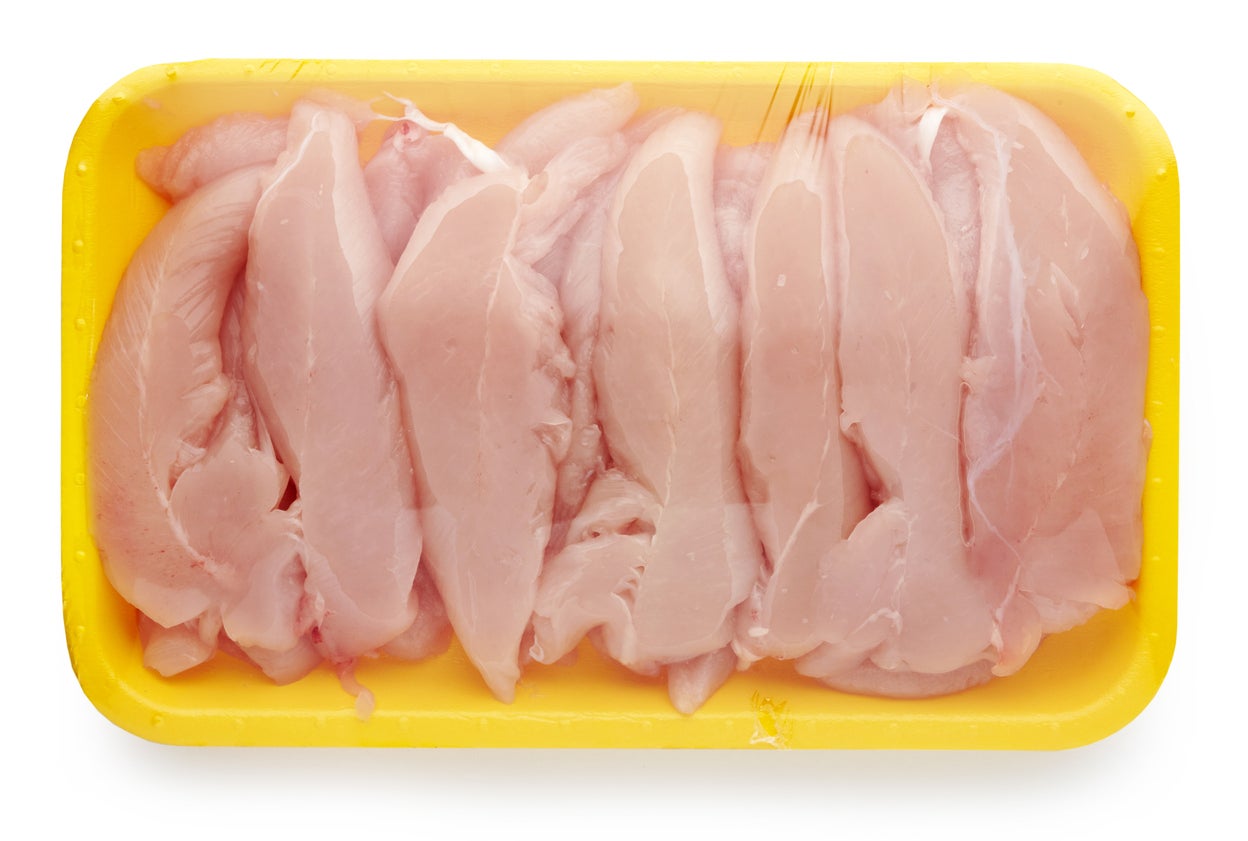We need action over the way chickens are treated to put meat on our plates
‘FrankenChickens’ are bred with oversized bodies and live life enduring a raft of health problems while imprisoned in cramped factory farms. We must phase out this cruel practice


Your support helps us to tell the story
From reproductive rights to climate change to Big Tech, The Independent is on the ground when the story is developing. Whether it's investigating the financials of Elon Musk's pro-Trump PAC or producing our latest documentary, 'The A Word', which shines a light on the American women fighting for reproductive rights, we know how important it is to parse out the facts from the messaging.
At such a critical moment in US history, we need reporters on the ground. Your donation allows us to keep sending journalists to speak to both sides of the story.
The Independent is trusted by Americans across the entire political spectrum. And unlike many other quality news outlets, we choose not to lock Americans out of our reporting and analysis with paywalls. We believe quality journalism should be available to everyone, paid for by those who can afford it.
Your support makes all the difference.In my career working as a veterinary surgeon and animal welfare campaigner for the past 25 years, it goes without saying that I have seen animals in their very worst states. However, the current treatment of most of the chickens raised for their meat in the UK has shocked me to my core.
The way chickens are treated in factory farms couldn’t be further from the way our companion animals are treated in our homes, as members of the family. We love the animals we live with, and most people would be mortified if these animals were suffering in the same way some chickens suffer every single day, and night, in factory farms across the UK.
This is why I’m compelled to support the work of animal protection groups Animal Equality UK, Open Cages, RSPCA, and The Humane League UK in raising awareness of these so-called ‘FrankenChickens’ (the name given to chickens who have been so extensively modified by selective breeding).
Unsurprisingly, the life of a ‘FrankenChicken’ is one of complete and utter misery. When we look at the science, we can see that these chickens will suffer. They have been designed to produce as much meat as possible, as quickly as possible, which clearly results in serious consequences for the welfare of these animals during the short time they are alive, which is typically only around 35 days.
They have been selectively bred over decades to the point where their genetics not only make them incredibly susceptible to disease, but they also suffer various heart problems, lameness, chronic hunger, and breast muscle myopathies (more commonly known as green muscle disease), where these muscles grow so fast that their hearts simply cannot keep up with the strain. In short, the way these chickens have been “designed” means that they are very likely to endure a life of pain and suffering.
Chickens are intelligent animals too, each enjoying their own individual personalities. They like to keep very busy by performing behaviours that are natural to them, like foraging and dustbathing. Just imagine the frustration your dog would feel if they couldn’t run around outside, or go for walks, or how your cat would feel if they barely had enough space to properly clean themselves.
As well as the pain they already suffer, due to their oversized bodies, these chickens raised for meat spend their days imprisoned in cramped factory farms; I cannot think of a more frustrating situation for intelligent animals to be living in day in, day out.
As a nation of animal-lovers, how can this animal cruelty not just be taking place, but also be tolerated by some of the country’s supermarket chains? Supermarkets are places most of us trust and we have certain expectations of them; we expect animal welfare to be taken incredibly seriously, evidence shows this is not always the case.
Some of the biggest names in UK supermarkets are still yet to commit to the Better Chicken Commitment, a globally recognised animal welfare initiative. This commitment requires a company to commit to abolishing some of the cruellest practices within its supply chain, such as fast-growing breeds and cramped conditions, by 2026.
Even more concerning, is that there has been a growing trend among supermarkets to implement the Better Chicken Commitment requirements only on a specific range of chicken meat. This completely goes against the main objective of the requirement, that it covers all chicken meat Consumers should never be forced to choose between a higher price or lower animal welfare.
Waitrose and M&S have signed up to the Better Chicken Commitment, proving they are taking animal welfare seriously. We’re not asking for too much here, this is something that is achievable for all supermarkets. It is possible to sign up while keeping products affordable.
Meanwhile, the UK government has recognised the suffering of ‘FrankenChickens’ as a serious problem, with much-needed talks of phasing out these breeds completely. Some supermarkets are now falling behind, and the longer they wait to make this critical commitment, the more chickens will suffer.
The current treatment of chickens used for meat on factory farms is one of the most pressing animal welfare issues of our time, and some supermarkets need to start taking this much more seriously.
Chris Packham, TV presenter and naturalist, has recently started an online petition urging supermarkets to do better for chickens. I hope you’ll join me in supporting this important call to action. Please sign the petition today.
Marc Abraham is a multi award-winning media vet, author, animal welfare campaigner
Join our commenting forum
Join thought-provoking conversations, follow other Independent readers and see their replies
Comments